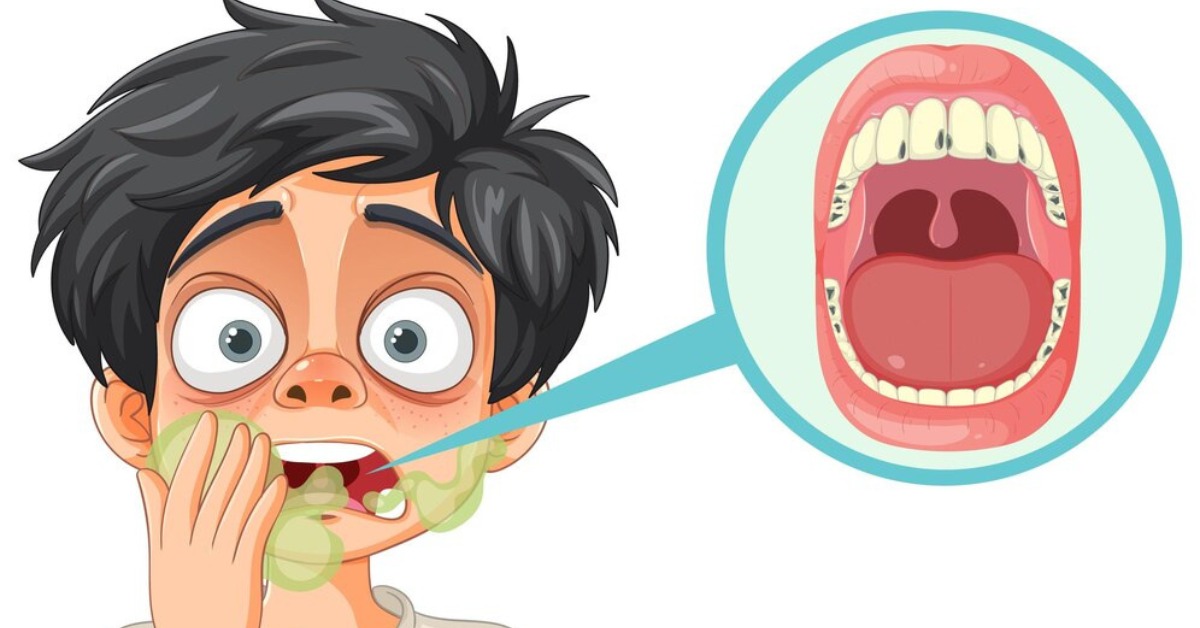Oral thrush (or oropharyngeal candidiasis) is a common infection that primarily affects the inside of the mouth, tongue, and throat. This infection is caused by a fungus (yeast) called Candida. While this fungus normally exists in small amounts in our body, when it grows excessively, it leads to an infection. This condition is more common among those with weakened immune systems, such as young children, elderly people, and individuals with serious illnesses.
Symptoms of Oral Thrush
The symptoms of oral thrush can vary, but some of the most common ones are:
- White patches inside the mouth (which can often look like milk stains)
- A burning or painful sensation inside the mouth
- A red or swollen tongue
- Difficulty swallowing
- Dry mouth
- Bad breath
If any of these symptoms appear, it’s important to consult a doctor as soon as possible.
Causes of Oral Thrush
There are several factors that can contribute to oral thrush, including:
- Weakened Immune System:
People with weakened immune systems, such as those with HIV, undergoing cancer treatments (chemotherapy), or suffering from autoimmune diseases, are more likely to develop oral thrush. - Excessive Use of Antibiotics:
Excessive use of antibiotics can kill off beneficial bacteria in the body, which allows the Candida fungus to grow unchecked. - Diabetes:
People with diabetes often have higher blood sugar levels, which provide an ideal environment for Candida to grow. - Tobacco Use:
Smoking or using tobacco products can also increase the risk of developing oral thrush. - Poor Oral Hygiene:
Not maintaining good oral hygiene can contribute to the development of Candida infections.
Diagnosis of Oral Thrush
Oral thrush is usually diagnosed by a doctor through a physical examination. If someone is showing symptoms of oral thrush, the doctor will inspect the affected areas and may take a sample (swab) from the mouth to confirm the infection. In some cases, blood tests or other examinations may be done, especially if the infection is severe or spreading to other parts of the body.
Treatment of Oral Thrush
The treatment for oral thrush is primarily with antifungal medications. Doctors may prescribe antifungal tablets, mouthwashes, or ointments. Commonly used medications include:
- Antifungal Medications:
Medications like fluconazole, nystatin, and clotrimazole are effective in killing the fungus. - Maintaining Oral Hygiene:
Good oral hygiene is crucial. Brush regularly and use mouthwash. - Diet and Lifestyle Changes:
For those with diabetes, controlling blood sugar levels is very important. Quitting tobacco use and eating a healthy diet can also be helpful. - Natural Remedies:
Natural remedies, such as ginger, turmeric, and lemon water, may help, but they should only be used after consulting a doctor.
FAQs
When to See a Doctor?
If the symptoms of oral thrush do not improve over time or if other serious symptoms like difficulty swallowing, pain, or fever appear, it’s important to see a doctor immediately.
Doctors and Treatment in Indore
If you are looking for treatment for oral thrush in Indore, you can easily find specialists in the area. Many doctors in Indore are experienced in diagnosing and treating oral thrush, offering the right treatment to help you recover.
What is oral thrush, and how does it occur?
Oral thrush, or oropharyngeal candidiasis, is an infection caused by an overgrowth of Candida fungus in the mouth, tongue, or throat. It usually occurs when the immune system is weakened or due to factors like poor oral hygiene, diabetes, or excessive use of antibiotics.
What are the common symptoms of oral thrush?
Common symptoms include white patches inside the mouth, pain or burning sensation in the mouth, a red or swollen tongue, difficulty swallowing, dry mouth, and bad breath. If you experience any of these, it’s important to consult a doctor for proper diagnosis and treatment.
Can oral thrush affect healthy individuals?
While oral thrush is more common in those with weakened immune systems, healthy individuals can also get oral thrush. Factors like poor oral hygiene, smoking, or uncontrolled diabetes can increase the risk of developing this infection.
How is oral thrush diagnosed and treated?
Oral thrush is diagnosed through a physical exam by a doctor, who may take a swab from the affected area to confirm the infection. Treatment typically involves antifungal medications, maintaining good oral hygiene, and making lifestyle changes, such as controlling blood sugar levels in diabetic patients.
When should I see a doctor for oral thrush?
If the symptoms of oral thrush persist or worsen, or if you experience severe pain, difficulty swallowing, fever, or other concerning symptoms, you should consult a doctor. Early diagnosis and treatment can prevent the infection from spreading or becoming more severe.


